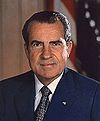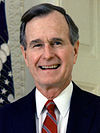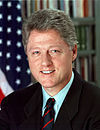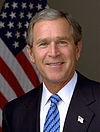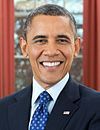David Swanson's Blog, page 141
June 24, 2013
Operation Junkyard: US scraps 'tons' of equipment as Afghan exit looms
June 22, 2013
Global Rescue Plan
When the wealthy nations of the world meet as the G8 or in any other gathering, it's interesting to imagine what they would do if they followed the golden rule, valued grandchildren, disliked unnecessary suffering, or wished to outgrow ancient forms of barbarism, or any combination of those.
The United States alone is perfectly capable, if it chooses, of enacting a global marshall plan, or -- better -- a global rescue plan. Every year the United States spends, through various governmental departments, roughly $1.2 trillion on war and war preparations. Every year the United States foregoes well over $1 trillion in taxes that billionaires and centimillionaires and corporations should be paying.
June 20, 2013
Prisons Full of Innocents
There are probably more innocent men and women in prison in the United States now than there were people in prison here total -- innocent and guilty -- 30 years ago, or than there are total people in prison (proportionately or as an absolute number) in most nations on earth.
I don't mean that people are locked up for actions that shouldn't be considered crimes, although they are. I don't mean that people are policed and indicted and prosecuted by a racist system that makes some people far more likely to end up in prison than other people guilty of the same actions, although that is true, just as it's also true that the justice system works better for the wealthy than for the poor. I am referring rather to men (it's mostly men) who have been wrongly convicted of crimes they simply did not commit. I'm not even counting Guantanamo or Bagram or immigrants' prisons. I'm talking about the prisons just up the road, full of people from just down the road.
I don't know whether wrongful convictions have increased as a percentage of convictions. What has indisputably increased is the number of convictions and the lengths of sentences. The prison population has skyrocketed. It's multiplied several fold. And it's done so during a political climate that has rewarded legislators, judges, prosecutors, and police for locking people up -- and not for preventing the conviction of innocents. This growth does not correlate in any way with an underlying growth in crime.
At the same time, evidence has emerged of a pattern of wrongful convictions. This emerging evidence is largely the result of prosecutions during the 1980s, primarily for rape but also for murder, before DNA testing had come into its own, but when evidence (including semen and blood) was sometimes preserved. Other factors have contributed: messy murderers, rapists who didn't use condoms, advances in DNA science that helps to convict the guilty as well as to free the innocent, avenues for appeal that were in some ways wider before the 1996 Antiterrorism and Effective Death Penalty Act, and the heroic work of a relative handful of people.
An examination of the plea bargains and trials that put people behind bars ought to make clear to anyone that many of those convicted are innocent. But DNA exonerations have opened a lot of eyes to that fact. The trouble is that most convicts do not have anything that can be tested for DNA to prove their guilt or innocence. Here are 1,138 documented exonerations out of that tiny fraction of the overall prison population for which there was evidence to test. One study found that 6% of these prisoners are innocent. If you could extrapolate that to the whole population you'd be talking about 136,000 innocent people in U.S. prisons today. In the 1990s, a federal inquiry found that DNA testing, then new, was clearing 25% of primary suspects. You do the math.
Of course you can't simply do the math, because wrongful convictions could be higher or lower for the available sample than for all prisoners. What we can be sure of is that we are talking about a large number of people whose lives (and the lives of their loved ones) have been ruined -- not to mention the lives of additional victims of actual criminals left free.
One way to be fairly sure that the rate of wrongful conviction carries over, at least very roughly, to a variety of criminal prosecutions is to examine how those convictions came about. Brandon Garrett's Convicting the Innocent: Where Criminal Prosecutions Go Wrong examines the prosecutions of the first 250 people exonerated by DNA testing. Garrett finds broad systemic problems that could be remedied but largely have not been.
Of the 250, 76% were misidentified by an eyewitness -- most of the witnesses having been led to that act by police and/or prosecutor, some of them badgered and threatened, others merely manipulated. Invalid forensic science expertise contributed to 61% of the convictions, much of it willfully manipulated, some fraction perhaps attributable to well-intentioned but negligent incompetence. Informants, mostly jailhouse informants, and most of them manipulated and bribed by police or prosecutor, helped out in 21% of the trials. In 16% of the cases, the accused supposedly confessed to the crime, but these "confessions" tended to be the result of police intimidation, manipulation, brutality, and simple lying. Garrett fears that similar problems infect the U.S. justice system as a whole.
Garrett focuses on problems in policy and perspective. People who believe all eyewitnesses are correct and truthful can mean well and nonetheless get an important point wrong. People who aren't aware that false confessions exist won't look for them. But people unaware of such things are not typically part of the criminal justice system, where awareness of these problems is built in but steamrolled over. Judges ask whether witnesses were improperly led to misidentify a witness, but care little for the answers they receive. While Garrett begins and ends his book by claiming that pretty much everyone means well, the intervening pages grown under the weight of endless malevolence. In reading the book, I found myself over and over again scribbling "Did this guy mean well?" in the margin.
Do police feeding a false confession to their victim mean well? When they falsely report on that procedure to a court do they mean well? When they use tape recorders but shut them off each time they feed the prisoner new facts, do they mean well? When they hide evidence? When they destroy evidence? When they stack lineups and pressure witnesses to make identifications? When they hypnotize witnesses? When the prosecutor employs junk science and knowingly makes false claims about it? When simple procedures to avoid bias are known but avoided? When expert witnesses lie for a living? When crime labs alter reports to coverup exculpatory evidence? When police or prosecutors bribe other convicts or codefendants to testify and tell them what to say, but lie about that procedure? When the defense is denied competent counsel or the ability to call witnesses? When the judge effectively acts as part of the prosecution? When jurors pressure and threaten a fellow juror to vote "guilty"?
"It is almost unheard of for prosecutors to be disciplined or sanctioned for misconduct," writes Garrett, who is no doubt also familiar with this saying: "Power corrupts, and absolute power corrupts absolutely." Garrett believes that serious reforms are needed, and points to North Carolina where a commission has been set up to aid in freeing and not convicting the innocent. If you imagine that that's what appeals courts are for, read how they handled these 250 cases. In 23 cases, the victim was tried more than once for the same crime. One in a blue moon the system works and frees an innocent -- just often enough to keep hope floating out there like a lottery ticket in the distance. Even when DNA clears a prisoner, a prosecutor may propose to try him again, and then do nothing for years while he rots in prison waiting. North Carolina has passed legislation reforming procedures for eyewitnesses, requiring the recording of interrogations, enhancing the preservation of evidence and access to DNA testing, etc.
But one of the major reforms needed is clearly a reform of attitude. And that probably will come more quickly if we recognize what current attitudes are. Jurors and judges should be aware of how often many prosecutors and police officers pursue conviction at the expense of the truth. They should not prejudge in that direction any more than in the other, but they should be aware of what they are up against. If, as a society, we valued the freedom of innocents as much as the punishment of the guilty, we would treat judges and prosecutors and defense attorneys and police differently. We would reward protection of the innocent as much as convictions. A "successful" prosecution would be redefined as one that, first, did no harm. The police officer who found an alibi for a suspect would be praised and promoted just like the officer who found evidence of his guilt. A defendant might even someday find it possible to gain representation from an attorney who at least pretended to believe in at least the possibility of his innocence, and who behaved accordingly.
In the meantime, we are generating and compounding tragedies by the thousands. When James O'Donnell was wrongly convicted, he exploded with anger and cursed the judge and jury. Then he composed himself and said, "I am really sorry for my outburst. I tried to be as civil as possible. I would never do a crime like this. And my life is over now as I know it, my wife and kids' life. I don't understand how the jury did this to me. It's really not right, what they did. I was home in bed. I was sleeping. I would never hit a woman. I have a wife. I never hit my kids, ever. I never forced a woman to do anything in my whole life. That's the God's honest truth . . . It's just -- I'm very sorry for my outburst. Don't take my life away, please."
June 19, 2013
10 Problems with the Latest Excuse for War
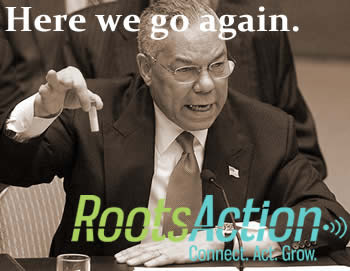 If you own a television or read a newspaper you've probably heard that we need another war because the Syrian government used chemical weapons.
If you own a television or read a newspaper you've probably heard that we need another war because the Syrian government used chemical weapons.
If you own a computer and know where to look you've probably heard that there isn't actually any evidence for that claim.
Below are 10 reasons why this latest excuse for war is no good EVEN IF TRUE.
1. War is not made legal by such an excuse. It can't be found in the Kellogg-Briand Pact, the United Nations Charter, or the U.S. Constitution. It can, however, be found in U.S. war propaganda of the 2002 vintage. (Who says our government doesn't promote recycling?)
2. The United States itself possesses and uses internationally condemned weapons, including white phosphorus, napalm, cluster bombs, and depleted uranium. Whether you praise these actions, avoid thinking about them, or join me in condemning them, they are not a legal or moral justification for any foreign nation to bomb us, or to bomb some other nation where the U.S. military is operating. Killing people to prevent their being killed with the wrong kind of weapons is a policy that must come out of some sort of sickness. Call it Pre-Traumatic Stress Disorder.
3. An expanded war in Syria could become regional or global with uncontrollable consequences. Syria, Lebanon, Iran, Russia, China, the United States, the Gulf states, the NATO states . . . does this sound like the sort of conflict we want? Does it sound like a conflict anyone will survive? Why in the world risk such a thing?
4. Just creating a "no fly zone" would involve bombing urban areas and unavoidably killing large numbers of people. This happened in Libya and we looked away. But it would happen on a much larger scale in Syria, given the locations of the sites to be bombed. Creating a "no fly zone" is not a matter of making an announcement, but of dropping bombs.
5. Both sides in Syria have used horrible weapons and committed horrible atrocities. Surely even those who imagine people should be killed to prevent their being killed with different weapons can see the insanity of arming both sides to protect each other side. Why is it not, then, just as insane to arm one side in a conflict that involves similar abuses by both?
 6. With the United States on the side of the opposition in Syria, the United States will be blamed for the opposition's crimes. Most people in Western Asia hate al Qaeda and other terrorists. They are also coming to hate the United States and its drones, missiles, bases, night raids, lies, and hypocrisy. Imagine the levels of hatred that will be reached when al Qaeda and the United States team up to overthrow the government of Syria and create an Iraq-like hell in its place.
6. With the United States on the side of the opposition in Syria, the United States will be blamed for the opposition's crimes. Most people in Western Asia hate al Qaeda and other terrorists. They are also coming to hate the United States and its drones, missiles, bases, night raids, lies, and hypocrisy. Imagine the levels of hatred that will be reached when al Qaeda and the United States team up to overthrow the government of Syria and create an Iraq-like hell in its place.
7. An unpopular rebellion put into power by outside force does not usually result in a stable government. In fact there is not yet on record a case of U.S. humanitarian war benefitting humanity or of nation-building actually building a nation. Why would Syria, which looks even less auspicious than most potential targets, be the exception to the rule?
8. This opposition is not interested in creating a democracy, or -- for that matter -- in taking instructions from the U.S. government. On the contrary, blowback from these allies is likely. Just as we should have learned the lesson of lies about weapons by now, our government should have learned the lesson of arming the enemy of the enemy long before this moment.
9. The precedent of another lawless act by the United States, whether arming proxies or engaging directly, sets a dangerous example to the world and to those in Washington for whom Iran is next on the list.
10. A strong majority of Americans, despite all the media's efforts thus far, opposes arming the rebels or engaging directly. Instead, a plurality supports providing humanitarian aid.
We might better spread democracy by example than by bomb.
There are nonviolent pro-democracy movements in Bahrain and Turkey and elsewhere, and our government doesn't lift a finger in support.
But if you remember all those years of protesting wars and wishing millions of foolish partisan Republicans would join us in protesting blatant mass-murder even though the president was a Republican, I have good news for you. The Republicans are leading the way in pretending to oppose war this time. So, if you Democrats, who I'm sure were 100% sincere in opposing wars some years back are still ready to act, maybe -- just maybe -- we can build right now the sort of broad movement we've wanted.
If you're not too busy.
Talk Nation Radio: U.S. Peace and Justice Activists to Gather in Madison, Wisc.
 https://soundcloud.com/davidcnswanson/talk-nation-radio-u-s-peace
https://soundcloud.com/davidcnswanson/talk-nation-radio-u-s-peace
This summer three national gatherings of activists will converge on Madison, Wisconsin, allowing for cross-fertilization and creative planning of future actions for peace and justice in the United States. YOU are invited.
The Student Power Convergence, Aug. 1-5
The Democracy Convention, Aug. 7-11
The Veterans For Peace Convention, Aug. 7-11
Talk Nation Radio speaks with Roshan Bliss of the Student Power Convergence, Ben Manski of Democracy Convention, and Doug Rawlings of Veterans For Peace.
Total run time: 29:00
Host: David Swanson.
Producer: David Swanson.
Music by Duke Ellington.
Download or get embed code from Archive or AudioPort or LetsTryDemocracy.
Syndicated by Pacifica Network.
Please encourage your local radio stations to carry this program every week!
Past Talk Nation Radio shows are all available free and complete at
http://davidswanson.org/talknationradio
June 18, 2013
It's the Ownership
If you're like me you've read several books that list inspiring examples of worker owned businesses and co-ops, suggesting that expanding on such models might begin to right the wrongs of an incredibly unequal society that is growing even more unequal by the day.
The best such collection I've found is in a new book by Gar Alperovitz called What Then Must We Do? This book also offers a powerful argument that radical change is needed, albeit an argument with some possible flaws. First the inspiring examples:
June 17, 2013
Listen to the Occupy the Media Podcast
It's here http://occupythemedia.podomatic.com
Drones for Christ
How Jerry Falwell's Liberty U.—the world's largest Christian university—became an evangelist for drone warfare.
http://sojo.net/magazine/2013/07/drones-christ
LIBERTY UNIVERSITY in Lynchburg, Va., was founded by televangelist Jerry Falwell. Its publications carry the slogan “Training Champions for Christ since 1971.” Some of those champions are now being trained to pilot armed drones, and others to pilot more traditional aircraft, in U.S. wars. For Christ.

Liberty bills itself as “one of America’s top military-friendly schools.” It trains chaplains for the various branches of the military. And it trains pilots in its School of Aeronautics (SOA)—pilots who go up in planes and drone pilots who sit behind desks wearing pilot suits. The SOA, with more than 600 students, is not seen on campus, as it has recently moved to a building adjacent to Lynchburg Regional Airport.
Liberty’s campus looks new and attractive, large enough for some 12,000 students, swarming with blue campus buses, and heavy on sports facilities for the Liberty Flames. A campus bookstore prominently displays Resilient Warriors, a book by Associate Vice President for Military Outreach Maj. Gen. (Ret.) Robert F. Dees. There’s new construction everywhere you look: a $50 million library, a baseball stadium, new dorms, a tiny year-round artificial ski slope on the top of a hill. In fact, Liberty is sitting on more than $1 billion in net assets.
The major source of Liberty’s money is online education. There are some 60,000 Liberty students you don’t see on campus, because they study via the internet. They also make Liberty the largest university in Virginia, the fourth largest online university anywhere, and the largest Christian university in the world.
More than 23,000 online students are in the military—twice as many as students who live on campus. Liberty offers extra financial support to veterans and those on active duty, allowing them to be credited for knowledge learned in the military and to study online from a war zone.
Liberty has been turning out “Christ-centered aviators” for a decade. In fall 2011, Liberty added a concentration in Unmanned Aerial Systems (UAS, aka drones), making it one of the first handful of schools to do this. Now at least 14 universities and colleges in the U.S. have permits from the Federal Aviation Administration to fly drones, and many institutions, including community colleges, offer drone training.
If one chooses to concentrate studies on piloting drones, the load will include a half dozen courses on “intelligence.” Liberty students can also pick up a minor in strategic intelligence and take courses in terrorism and counterterrorism. (Liberty’s school of government brags that Newt Gingrich helped develop its course on “American exceptionalism.”)
Charlottesville to Be a Stop on Coast-to-Coast Bike Ride for Peace Led by Cindy Sheehan
An open-to-the-public pot-luck dinner will be held at 6 pm, followed by remarks from Cindy at 7, at Random Row Books in Charlottesville on June 25th.
Sign up here: https://www.facebook.com/events/170687569764624
WHAT: Gold Star Mother and "peace mom" Cindy Sheehan will lead a Tour de Peace bike ride across the United States from the grave of her son Casey in Vacaville, Calif., to Washington, D.C., following the mother road, historic Route 66 to Chicago, and other roads from there on to D.C. Bicyclers will join in for all or part of the tour, which will include public events organized by local groups along the way.
Complete route: http://tourdepeace.org/the-route.html
WHEN: The tour began on April 4, 2013, nine years after Casey Sheehan was killed in Iraq, and 45 years after Dr. Martin Luther King, Jr., was killed in Memphis. It will conclude on July 3, 2013, with a ride from Arlington National Cemetery to the White House.
WHY: This August will mark 8 years since Cindy Sheehan began a widely reported protest at then-President George W. Bush's "ranch" in Crawford, Texas, demanding to know what the "noble cause" was for which Bush claimed Americans were dying in Iraq. Neither Bush nor President Obama has yet offered a justification for a global war now in its 12th year. The Tour de Peace will carry with it these demands:
To end wars,
To end immunity for U.S. war crimes,
To end suppression of our civil rights,
To end the use of fossil fuels,
To end persecution of whistleblowers,
To end partisan apathy and inaction.
Watch the trailer: http://youtu.be/2uBctq4dzss
June 15, 2013
The Pope and the Kill List
In 1984 -- the year not the book, but it was fitting -- and five years before she died, Barbara Tuchman published a book called The March of Folly: From Troy to Vietnam. In one part of the book she looked at the destructive work of a series of a half-dozen popes, work destructive of the papacy, work that brought into being the protestant secession from the Catholic church. This was offered as an example of folly, of rulers acting against the interest of their own institution. It was also an example of what we so casually label "the imperial presidency." That is, in these popes we watched the mad and cumulative concentration of power and normalization of abuses that Tuchman almost certainly was aware she was living through again -- along with the debasement of an institution previously imagined to embody certain principles and integrity.
Does history repeat itself?
Is the Pope Catholic?
Sixtus IV, Pope from 1471 to 1484 / Richard Nixon, President 1969-1974
"Sixtus introduced the period of unabashed, unconcealed, relentless pursuit of personal gain and power politics. . . . Antagonism slowly gathered around Sixtus. . . . [H]e exhibited the worst qualities of the Renaissance prince in his feuds and machinations, conducting wars on Venice and Ferrara. . . . The most scandalous of his dealings was involvement in and possible instigation of the Pazzi plot to murder the Medici brothers. . . . The internal health of the Church did not interest Sixtus."
Innocent VII, Pope from 1484 to 1492 / Jimmy Carter, President 1977-1981
"Amiable, indecisive, subject to stronger-minded associates, Sixtus' successor was a contrast to him in every way except in equally damaging the pontificate, in this case by omission and weakness of character."
Alexander VI, Pope from 1492 to 1503 / Ronald Reagan, President 1981-1989
"[T]hough cultivated and even charming, he was thoroughly cynical and utterly amoral. . . . To celebrate the final expulsion of the Moors from Spain, in 1492, the year of his election, he staged not a Te Deum of thanksgiving but a bullfight in the Piazza of St. Peter's with five bulls killed. . . . So many had been Alexander's offenses that his contemporaries' judgments tend to be extreme, but Burchard, his Master of Ceremonies, was neither antagonist nor apologist. The impression from his toneless diary of Alexander's Papacy is of continuous violence, murders in churches, bodies in the Tiber, fighting of factions, burnings and lootings, arrests, tortures and executions, combined with scandal, frivolities and continuous ceremony. . . . Certain revisionists have taken a fancy to the Borgia Pope and worked hard to rehabilitate him by intricate arguments . . . . The revision fails to account for one thing: the hatred, disgust and fear that Alexander had engendered."
Pius III, Pope from 1503 to 1503 / Bush Sr, President 1989-1993
He also happened.
Julius II, Pope from 1503 to 1513 / Bill Clinton, President 1993-2001
"Years of belligerence, conquests, losses, and violent disputes engaged him. . . . Art and war absorbed papal interest and resources to the neglect of internal reform. . . . In reference books he can be found designated as 'true founder of the Papal State'. . . . That the cost had been to bathe his country in blood and violence and that all the temporal gains could not prevent the authority of the Church from cracking at the core within ten years are not reckoned in these estimates."
Leo X, Pope from 1513 to 1521 / George W. Bush, President 2001-2009
"'God has given us the Papacy -- Let us enjoy it.' . . . the new Pope was a hedonist . . . with as little concern for cost as if the source of funds were some self-filling magic cornucopia. The popes' wars also earned Erasmus' scorn . . . . 'As if the Church had any enemies more pestilential than impious pontiffs. . . . The monarchy of the Pope at Rome, as it is now, is a pestilence to Christendom.' . . . Machiavelli found proof of decadence in the fact that 'the nearer people are to the Church of Rome, which is the head of our religion, the less religious they are.' . . . The abuse that precipitated the ultimate break was the commercialization of indulgences. . . . [T]he Pope was unaware of the issues and incapable of understanding the protest that had been developing for the century and a half. . . . Leo hardly noticed the fracas in Germany except as a heresy to be suppressed like any other. . . . Leo left the Papacy and the Church in the 'lowest possible repute.' . . . . A lampoon suggested that if the Pope had lived longer, he would have sold Rome too, and then Christ, and then himself."
Clement VII, Pope from 1523 to 1534 / Barack Obama, President since 2009
"The new Clement's reign proved to be a pyramid of catastrophes. Protestantism continued its advance. . . . Supreme office, like sudden disaster, often reveals the man, and revealed Clement as less adequate than expected. Knowledgeable and effective as a subordinate, Guicciardini writes, he fell victim when in charge to timidity, perplexity, and habitual irresolution. . . . By 1527, hardly a part of Italy had escaped violence to life and land, plunder, destruction, misery, and famines. Clement's misjudgments having prepared the way, Rome itself was now to be engulfed by war."
"The folly of the popes was not pursuit of counter-productive policy so much as rejection of any steady or coherent policy either political or religious that would have improved their situation or arrested the rising discontent. Disregard of the movements and sentiments developing around them was the primary folly. . . . When private interest is placed before public interests, and private ambition, greed, and the bewitchment of exercising power determine policy, the public interest necessarily loses, never more conspicuously than under the continuing madness from Sixtus to Clement. The succession from Pope to Pope multiplied the harm. Each of the six handed on his conception of the Papacy unchanged. . . . St. Peter's See was the ultimate pork barrel. Their three outstanding attitudes -- obliviousness to the growing disaffection of constituents, primacy of self-aggrandizement, illusion of invulnerable status -- are persistent aspects of folly. While in the case of the Renaissance popes, these were bred in and exaggerated by the surrounding culture, all are independent of time and recurrent in governorship."


